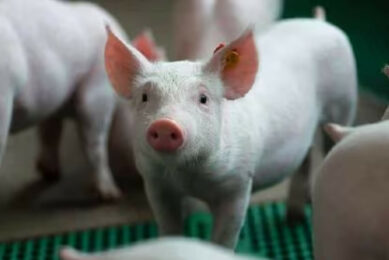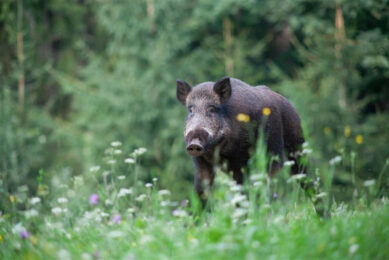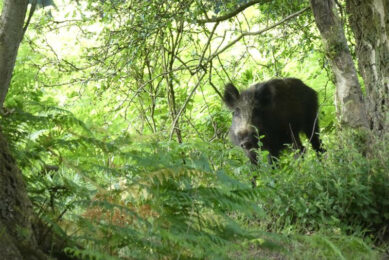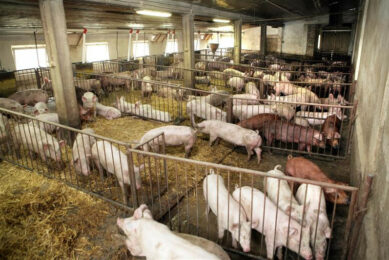UK pig industry needs to get serious about disease

The pig industry faces the loss of millions of pounds as well as export markets unless it takes urgent action to step up its biosecurity measures against two key disease threats.
The warning was given at a recent BPEX seminar near York, but two similar seminars in Diss, Norfolk, and Shepton Mallett, Somerset, had to be cancelled because of a lack of interest.
Derek Armstrong, former head of research and development at BPEX, said: “Cancelling them shows the industry is not serious about learning about these diseases. They need to be a lot more serious about this.”
The two diseases in question are porcine epidemic diarrhoea virus (PEDv) and African swine fever (ASF).
Within the next 10 years there was a four in five chance of the industry being hit by a virus such as PEDv “or something that has just as big an effect”.
“If we have lax biosecurity, don’t be surprised if we go down the road to these diseases. But if we cover ourselves, we can get ahead of them,” he said.
Mr Armstrong, who now works in the dairy sector, told Farmers Weekly after the seminar that even in Canada, where they had increased their measures, some units had been hit by PEDv.
“There is too much complacency. There is an assumption that because biosecurity is better than it was, it is OK, but there is room for real improvement.”
The industry was suffering from “delusions of confidence”, but once the diseases hit they would spread like wildfire, he warned.
PEDv
PEDv infects the cells lining the small intestine of pigs, and newborn piglets usually die within five days, although the disease cannot be transmitted to humans, nor to the human food supply.
Clinical symptoms are indistinguishable from transmissible gastroenteritis (TGE) and include diarrhoea and vomiting. Older pigs get sick and lose weight. A pig unit could be out of production for eight weeks or more if it was hit by the virus.
It was first discovered in Europe, but has affected Korea, China, Japan, the Philippines and Thailand. Last year it was discovered in Indiana in the USA and in Canada earlier this year.
ASF
The UK has also managed to avoid being hit by ASF, but Susanna Williamson of the Animal Health and Veterinary Laboratories Agency said it was causing “serious problems” in Russia and eastern Europe.
“It is becoming established and so is much harder to remove,” she said.
It is a notifiable disease and the symptoms are similar to those of classical swine fever, including fever, loss of appetite, a lack of energy and sudden death with few signs beforehand.
Last year, 644,000 wild boar, which can become infected and spread the disease, were shot in Germany alone and nearly 500,000 elsewhere, including Poland.
It had hit the small “backyard”-style units to be found in eastern Europe, but even a Danish-owned commercial unit in Latvia that was extremely biosecurity conscious had been affected.
The owners were not sure how it happened, but they found wild boar carcasses nearby and the police were investigating whether there had been “deliberate activity” against the unit.
Suffolk vets Jake Waddilove and David Chennells stressed that an integral part of any biosecurity strategy was to clean and disinfect properly.
“Biosecurity is like any other insurance policy – it is a prudent investment. Is this a policy you can afford to ignore?” asked Mr Waddilove. “If biosecurity does not inconvenience you, you are not doing it right.”
Steps to take to ensure your unit is biosecure
– Know the health status of incoming pigs to ensure they are disease free.
– Traceability – keep good records of any movements of pigs, people, lorries and feed.
– Minimise the number of sources of semen supplies.
– Verify that transport companies have defined biosecurity protocols.
– Use clean, warm water rather than cold and disinfect the whole of a vehicle, including steps and the cab.
– Ensure there are proper barriers separating different parts of the unit.
– Have protocols for staff and visitors regarding where they are allowed to go.
– Have dedicated tools for dedicated buildings.
– Feed lorries should be able to deliver the goods from outside the unit.
– Don’t accept feed that has been on another farm.
– Collect, contain and dispose of manure away from the herd.
[Source: FarmersWeekly]











